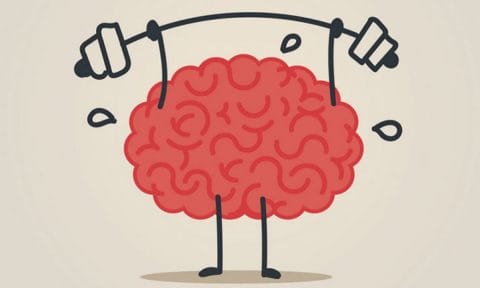
Your mental health refers to the peace of mind and social balance, including your behavior, feelings, relationships with others, and your ability to deal with day-to-day problems. How you act and respond in life is directly related to good mental health, and it is equally important to maintain good physical health. So, this makes it the crucial aspect of your life which needs to be taken care of. Here are ten effective tips to improve your mental health.
Ten Mental Health Tips
1). Stay Physically Active
To improve your mental health, you must stay physically active. For this, mild to moderate exercise is important for maintaining good mental health. Regular exercise not only lifts your mood but also helps to keep you physically healthy.
2). Connect Socially
You must connect with your family and friends to improve your mood and get rid of stress and anxiety. The bonds made in person are far stronger and more beneficial for the mind.
3). Meditation
Another crucial method for enhancing mental health is meditation. Deep breathing techniques, which are a component of meditation, assist reduce tension and anxiety. Meditation also aids in the cessation of unhealthy behaviors like smoking.
4). Share Your Feelings
If you are sad, you must talk to someone or visit your friend’s house. Sharing your feelings with people who care about you can help you manage stress.
5). Eat a Healthy Diet
Healthy food gives energy and helps enhance the brain’s and other organs’ health. You must include the best diet to improve mental health including fresh fruits, green leafy veggies, nuts, avocados, and omega-3 fatty acids, which are very good for mental health.
6). Take Part in Hobbies
You must release your stress by spending time on an interesting hobby. You can listen to your favorite songs, dance to your favorite music, read books, or walk in the nature park.
7). Spare Some Free Time
Today’s stressful and hectic lifestyle has made every person rush from one place to another for work and to earn money. But, to improve mental health, you must spare time from your busy schedule to relax and enjoy.
8). Take Proper Sleep
Proper sleep of 7-8 hours a day is also important for being active and fresh throughout your day. A productive day will always lead to satisfaction happiness and, eventually, better mental health.
9). Avoid Excessive Use of Mobile Phones
Excessive use of mobile phones can negatively affect a person’s mental health. Also, spending more time on social media can cause anxiety and stress. Hence, try to avoid mobile phones and curtail their usage as much as possible. Go out, spend time with nature, friends, or family, and get peace of mind.
10). Ask For Help if You Need
Many people do not want to or find it difficult to ask for help from family and friends. You should always discuss your problem so that they can find a solution. Otherwise, you must consult the doctors and therapists from the Best Psychiatry Hospitals in Raipur if you do not feel well or suffer from any mental health issues.
It is not at all difficult to improve your mental health. You just need to follow the above mental health tips, like exercising regularly, eating healthy food, socializing, etc. Moreover, it is always preferable to take advice from the doctor to get the best course of treatment if required.

Lifestyle Changes
Making small changes in your daily routine can lead to significant improvements in your overall health and well-being. Here are some effective lifestyle changes you can consider:
- Eat at Regular Times: Establishing a consistent eating schedule helps regulate your metabolism and maintain steady energy levels throughout the day. Aim to have your meals at similar times each day.
- Incorporate High-Intensity Interval Training (HIIT): HIIT is a great way to fit in an effective workout in a shorter amount of time. It alternates between intense bursts of activity and periods of rest, boosting your fitness and burning calories efficiently.
- Reduce Stress: Chronic stress can take a toll on your health. Practice relaxation techniques like deep breathing, yoga, or meditation to help manage stress levels and improve your mental clarity.
- Get Enough Sleep: Prioritize sleep as it plays a crucial role in your physical and mental health. Aim for 7-9 hours of quality sleep each night to feel rested and rejuvenated.
- Seek Treatment for Hypothyroidism: If you’re experiencing symptoms like fatigue, weight gain, or mood changes, consult a healthcare professional. Proper treatment for hypothyroidism can help regulate your energy levels and overall health.
- Lift Weights for Mental Health: Strength training not only builds muscle but also enhances your mental well-being. Lifting weights can boost your mood, reduce anxiety, and increase your confidence.
What Not to Eat to Improve Metabolism?
Improving your metabolism involves not only what you eat but also what you avoid. Here are some foods and beverages to limit or avoid to help boost your metabolic rate:
- Sugary Foods and Drinks: High sugar intake can lead to insulin resistance, which may slow down metabolism. Avoid candies, pastries, sugary cereals, and soft drinks.
- Processed Foods: Many processed foods are high in unhealthy fats, sugars, and preservatives, which can negatively impact metabolic health. Stay away from packaged snacks, frozen meals, and fast food.
- Refined Carbohydrates: Foods like white bread, pastries, and white rice can spike blood sugar levels and lead to energy crashes. Opt for whole grains instead.
- Trans Fats: Found in many fried foods, baked goods, and margarine, trans fats can lead to inflammation and negatively affect your metabolism. Always check labels for partially hydrogenated oils.
- Excessive Alcohol: While moderate alcohol consumption may have some benefits, excessive drinking can slow your metabolism and lead to weight gain.
- Low-Calorie Diets: Severely restricting calories can lower your metabolic rate as your body goes into conservation mode. Instead of drastically cutting calories, focus on nutrient-dense foods.
- High-Sodium Foods: Foods that are high in sodium can lead to water retention, making you feel bloated. This can impact your body’s ability to effectively metabolize food.
- Artificial Sweeteners: Some studies suggest that artificial sweeteners may disrupt gut bacteria and impact metabolism. If possible, opt for natural sweeteners or reduce overall sugar intake.
- High-Fat Dairy Products: While dairy can be part of a balanced diet, high-fat varieties can lead to increased calorie intake. Choose low-fat or non-fat options when possible.
- High-Sugar Breakfast Cereals: Many breakfast cereals are loaded with sugar and low in fiber, which can lead to energy crashes and increased hunger throughout the day.

FAQs
Related Article: Mental Health
1). What are the 5 metabolic superfoods?
The five metabolic superfoods often mentioned are:
- Green tea: Contains catechins, which may enhance fat burning and boost metabolism.
- Chili peppers: Contain capsaicin, which can increase calorie burn and fat oxidation.
- Grapefruit: Known for its potential to aid in weight loss and improve insulin sensitivity.
- Berries: Packed with antioxidants, vitamins, and fiber, they can help manage weight and improve metabolic health.
- Lean protein (like chicken or fish): Requires more energy to digest compared to fats or carbohydrates, which can boost metabolism.
2). What is a high metabolic rate?
A high metabolic rate means your body burns calories more efficiently at rest and during activity. This can lead to easier weight management and increased energy levels. Factors that contribute to a high metabolic rate include genetics, muscle mass, age, and physical activity levels.
3). What affects your metabolism?
Several factors affect metabolism, including:
- Age: Metabolism generally slows down with age.
- Muscle mass: More muscle means a higher metabolic rate, as muscles require more energy to maintain.
- Hormones: Hormonal changes can influence metabolism; for example, thyroid hormones play a significant role.
- Diet: The type and amount of food consumed can impact metabolic rate.
- Physical activity: Regular exercise, especially strength training, can boost metabolism.
4). What are the signs of a slow metabolism?
Signs of a slow metabolism may include:
- Weight gain: Difficulty losing weight or unexpected weight gain.
- Fatigue: Low energy levels and increased fatigue.
- Cold intolerance: Feeling cold more often than others.
- Dry skin and hair: Skin may become dry or flaky, and hair may thin.
- Digestive issues: Constipation or other digestive problems.
- Mood changes: Increased irritability or mood swings.





